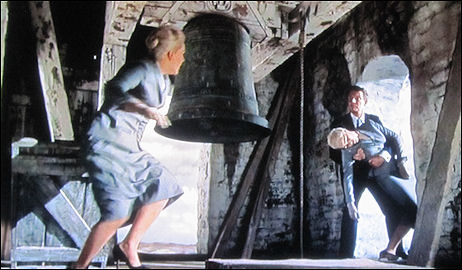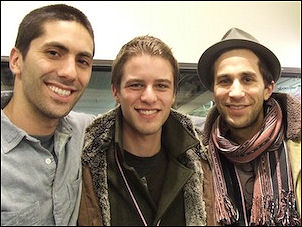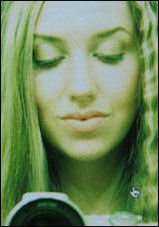“We’re all forgotten sooner or later,” Burt Lancaster allegedly once said. “But not films. That’s all the memorial we should need or hope for.”
It hit me as I read this that there’s never a formal announcement that a person of talent and accomplishment has been forgotten or written off. The fact of an actor being “over” tends to slowly leak or drip into collective consciousness. It’s a very gradual, almost imperceptible process, but it tends to kick in because they haven’t made a film of any perceived value in so long that people have mentally crossed them off the list.
People sense this or privately acknowledge it, but no one ever says it. It’s the same thing as when an actor has a terminal illness — it’s considered ungracious to mention in mixed company. And yet there’s always that moment when suddenly everyone knows and accepts the fact that a given actor is all but done, unplugged, out of the game.
Sometimes “over” results from a combination of an actor having chosen poorly to the point that they’ve diminished their brand, or sometimes life itself decides to diminish it without their input or say-so. Sometimes it’s a matter of an actor having enough money to cruise in style for the rest of their lives, so they don’t seem to care as much as they used to. (A meandering life can be intoxicating if you’re loaded.) Sometimes they’ve gone over the age hill and aren’t being offered well-written roles in quality projects any more.
This latter is happening, I fear, to poor Harrison Ford right now. Why else would he make a piece of TV-movie shite like Extraordinary Measures? My heart goes out to him, and I’m hoping that The Dying of the Light, a Paul Schrader-written thriller to be directed by Denmark’s Nicolas Winding Refn (Bronson), will be a rejuvenator.
If you’re Robert Duvall or Eli Wallach or Lancaster or George C. Scott, you’ll keep at it (and in mostly half-decent projects) until you drop. Some actors simply choose to work in anything rather than sit home and wither. What a comedown it was for the great James Stewart when he starred in The Magic of Lassie (’78). And yet acting in a crap film has to be better than doing nothing.
I find it astonishing that millions choose to step away from the grind and the challenge and just chill when they reach a certain age, actors and regular Joes alike. That’s like asking for it. I believe in dying at your desk, or, failing that, keeling over on a street in Paris on your way back from a great dinner with friends. I speak as a son who finds it difficult to control his emotions when he visits his mother in her assisted-living facility.
One immensely comforting thing about writing Hollywood Elsewhere is that I know I’ll never be forced or pressured to write a Hollywood column-equivalent of The Magic of Lassie. I regard HE as the writing-candor equivalent of a combination of The Fog of War, Duck Soup, The Big Sleep, I Heart Huckabees, Kiss Me Deadly, Cinema Paradiso, Wild in the Streets, Point Blank, Sweet Smell of Success, The Harder They Fall, A Serious Man and The American Friend.
It sounds a bit cruel to ask this, but who is more or less over as we speak? That sounds cavalier and insensitive, I realize, and yet people talk this way at industry parties all the time when the mood strikes.




